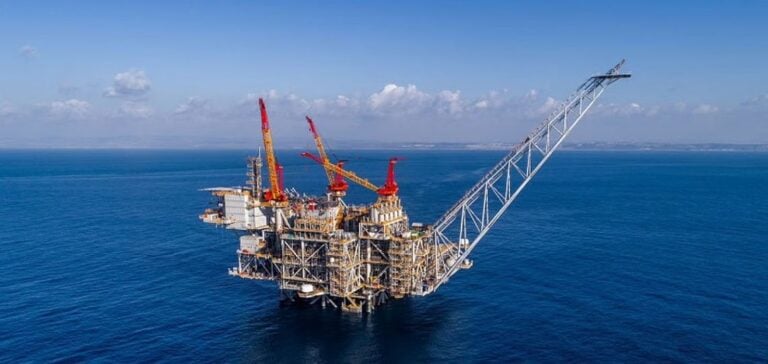The sudden decline in natural gas imports from Israel has compelled Egyptian companies specialized in fertilizer production to halt operations, according to sources cited by Reuters. This disruption follows the suspension of operations at the Israeli gas fields Leviathan and Karish, a direct consequence of recent military strikes conducted by Israel against nuclear facilities and missile factories in Iran.
Immediate impact on industry
Israeli authorities confirmed the suspension of operations at the offshore Leviathan gas field, while production at the Karish field has also temporarily ceased. Only the Tamar gas field remains operational at this stage, according to the same sources. These events significantly disrupt Egypt’s gas supply, crucial for the country’s industrial production.
Egypt has become heavily dependent on Israeli gas imports since its own domestic production began declining in 2022. According to the Joint Organisations Data Initiative (JODI), Israeli gas currently represents between 40% and 60% of Egypt’s imported gas, approximately 15% to 20% of the country’s total consumption. This unexpected interruption is prompting the Egyptian government to intensify its preparations to secure energy reserves.
Government measures in response to the crisis
During an emergency meeting, Egyptian Prime Minister Mostafa Madbouly stated that his government was closely monitoring regional developments, while quickly seeking to increase strategic reserves of various raw materials. Egyptian Petroleum Minister Karim Badawi specified that his ministry is currently working to stabilize the supply for power plants, having already signed several gas delivery contracts and stockpiled fuel oil.
To enhance national regasification capacities, Egypt is also preparing the installation of a third Floating Storage and Regasification Unit (FSRU). This new infrastructure will increase daily capacity to 2,250 million cubic feet, more than double compared to last year. Prime Minister Madbouly also mentioned the possibility of a fourth floating unit, considered an additional emergency measure in case of further disruptions.
Record purchases of liquefied natural gas
Facing regional supply instability, Egypt recently finalized several major contracts with energy firms and international traders to acquire at least 150 cargoes of liquefied natural gas (LNG). These purchases, amounting to over 8 billion US dollars at current prices, constitute the country’s largest-ever LNG importation.
Egyptian authorities have not specified when the situation might return to normal. Contacted by Reuters, Egypt’s Petroleum Ministry did not immediately respond to requests for comment. Developments in this situation remain closely monitored by the companies involved and international energy market actors.






















